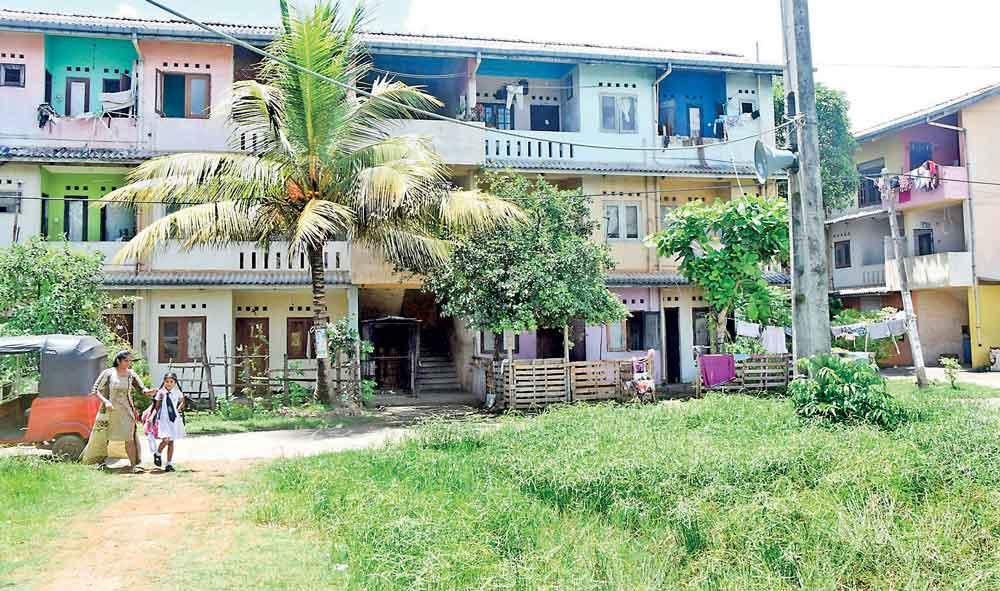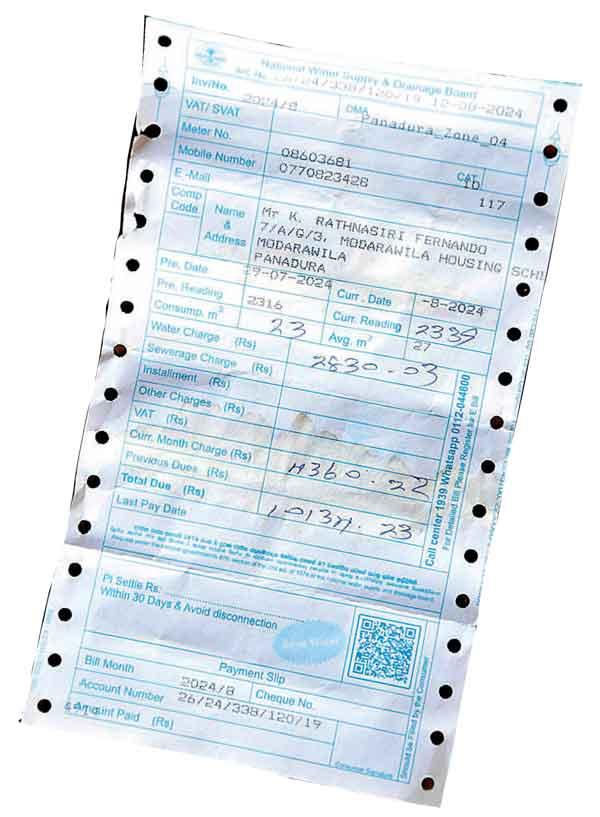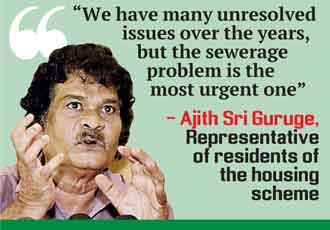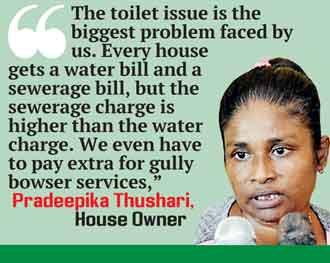Reply To:
Name - Reply Comment

The tsunami housing scheme in Modarawila, Panadura was built to give hope to those who lost everything to the 2004 tsunami
(Pix by Nimalsiri Edirisinghe)
|
At present, the residents in the three-storey building are dealing with a major problem The waste water treatment plant serving the tsunami housing scheme performs below capacity These houses were quickly built to provide shelter for tsunami victims who had been residing in temporary shelters on marshlands in Modarawila There are 34 buildings with 288 houses in the community |
About two decades ago, the tsunami housing scheme in Modarawila, Panadura was built to give hope to those who lost everything to the 2004 tsunami.
Many families moved here with hopes of rebuilding their lives. While the housing project initially helped, residents later found themselves entangled in various problems. These issues included poor infrastructure, limited access to essential services and ongoing maintenance issues.
At present, the residents in the three-storey building are dealing with a major problem which is a faulty sewerage system.
Only one gully bowser
To understand the situation better, the Daily Mirror visited the housing scheme with representatives of the Centre for Environmental Justice (CEJ) and Asia Lanka Social Development Cooperation (ALSDC).
ALSDC Executive Director Nandajith Hewage explained that only one gully bowser is available at the Panadura Municipal Council to handle the town’s sewerage disposal.

A copy of a water bill given to a resident
Panadura, being a busy town with 12 schools and a hospital, struggles to manage waste management. While there are separate waste water treatment plants in the area, the one serving the tsunami housing scheme performs below capacity.
 Hewage added that the buildings in the scheme were not well-planned.
Hewage added that the buildings in the scheme were not well-planned.
They were quickly built to provide shelter for tsunami victims who had been residing in temporary shelters on marshlands in Modarawila. As a result, the housing structures were not properly designed to meet long-term needs.
There are 34 buildings with 288 houses in the community.
“We have many unresolved issues over the years, but the sewerage problem is the most urgent one,” Ajith Sri Guruge, who represents the residents of the housing scheme said.
Septic tanks overflow
 He explained that their septic tanks often overflow; especially during rain.
He explained that their septic tanks often overflow; especially during rain.
“When the buildings were constructed, all sewerage tanks were connected to the waste water treatment plant. The plant officials claim that they can treat the water, but the system is clogged with hard materials like plastic and pieces of cloth,” Guruge explained.
Pradeepika Thushari, a house owner, shared her concerns.
“The toilet issue is the biggest problem faced by us. Every house gets a water bill and a sewerage bill, but the sewerage charge is higher than the water charge. Despite paying these bills, the system doesn’t work properly. We even have to pay extra for gully bowser services to remove the waste,” complained Thushari.
Residents also complained that the main sludge collection tank is managed by the National Water Supply and Drainage Board (NWSDB/Water Board) Panadura, but the motors are often switched off, adding to the woes of residents.
When the Daily Mirror tried to contact the Panadura NWSDB Manager to talk about the issue, he refused to speak and denied this scribe access to the premises.
The Panadura Municipal Council commissioner also declined to comment on the matter.
Waste water treatment plant clogged
|
The residents here face many issued and the sewerage problem is the most urgent one which demands attention
|
However later on an official from the Water Board said that the wastewater treatment plant often gets clogged due to heavy materials like cloth, plastic items and sometimes even bicycle helmets.
Most of the time, the machines get jammed by condoms. After the machines get stuck, workers at the Water Board have to manually remove them; which amounts to a challenging task.
He said that despite repeated advisories given not to dispose of hard materials, members of the housing scheme continued with their questionable practices.
When asked about an external pipeline directing the wastewater to the nearest lake, the official did not make any comments.
Frustrated by the ongoing issues, the residents are now calling on the government and relevant authorities to intervene and provide immediate solutions to their sewerage problems, which continue to disrupt their daily lives.